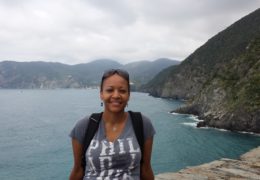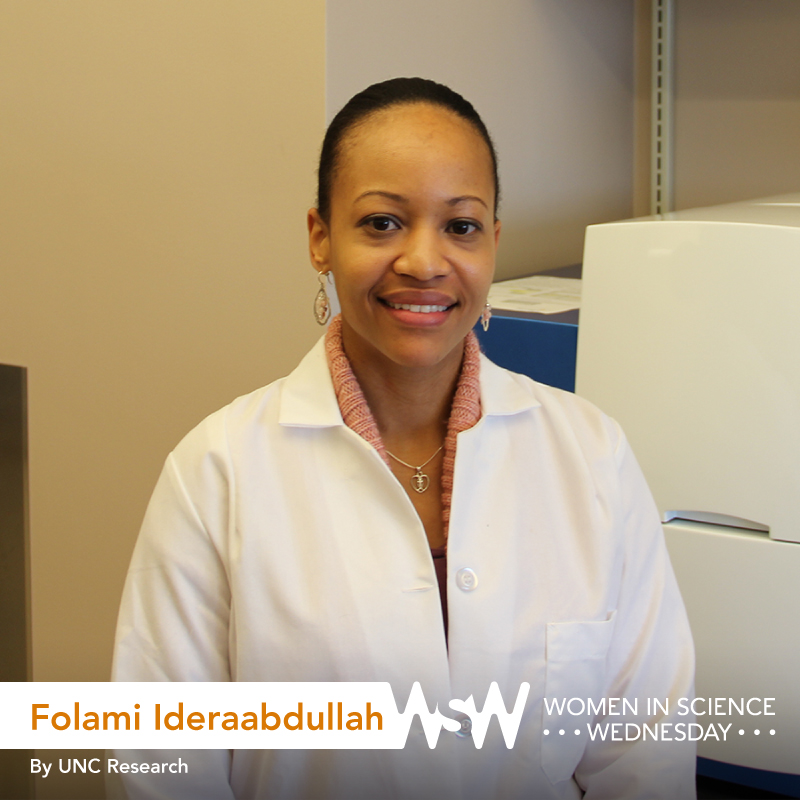When you were a little girl, what was your response to this question: “What do you want to be when you grow up?”
I don’t really remember a time when I did not want to be a scientist, but I recently found a diary from when I was about 8 or 9 years old. I had written that I wanted to be an entertainer or a designer. I’m not sure I knew then what either of those careers entailed, but I was very creative and inquisitive. I knew I wanted to do something where I would have the freedom to be creative and to explore beyond the limits of what was the norm for a girl like me at that time.
Describe your research in five words.
How the environment affects DNA.
What made you want to be a scientist?
I took my first full biology class in seventh grade and fell in love with science. I was fascinated by the complexity of life and the simplicity of the common basic makeup of every living organism (genetics). From then on, I was sure that was what I wanted to do. I was particularly intrigued by the idea of all life being connected at the molecular level and by the fact that we know so little about how these molecular functions interact to generate and maintain a healthy organism. To me, it was like a big puzzle laid out before us, and we had figured out some of the pieces, but there was so much more to know and put together. The anticipation and excitement of being a part of putting it all together motivated me toward making a career of it.
What’s the most interesting thing that happened while you were doing research?
I stabbed myself once. In my lab, we use Pasteur pipets that have very sharp tips. One afternoon, I was reaching across my bench for a reagent and collided with a beaker of about 50 drawn pipettes — tips pointing up. Several broke but one unlucky pipet stabbed me right through the knuckle of my middle finger. It was very painful, but I was mid-experiment, so I just finished up with my work with my left hand before going to occupational health. I still have a scar but otherwise no major complications. Since then, I keep all of my drawn pipets on the very top shelf out of my way.

Photo courtesy of Folami Ideraabdullah
Folami hiking through Cinque Terre, Italy, stopping to sample some limoncello.
What advice would you give to up-and-coming female researchers in your field?
Set your goals early — work hard and stay focused on them, but don’t forget to have fun and enjoy the process. Decide how much of your life you can devote to research. Develop a thick skin; you will face many rejections, disappointments, and failures. Celebrate every accomplishment. Develop strong mentoring relationships, remain humble, and never stop learning new things. Be yourself and don’t let other people or society norms define you or limit what you are capable of doing. Support other women in science.


